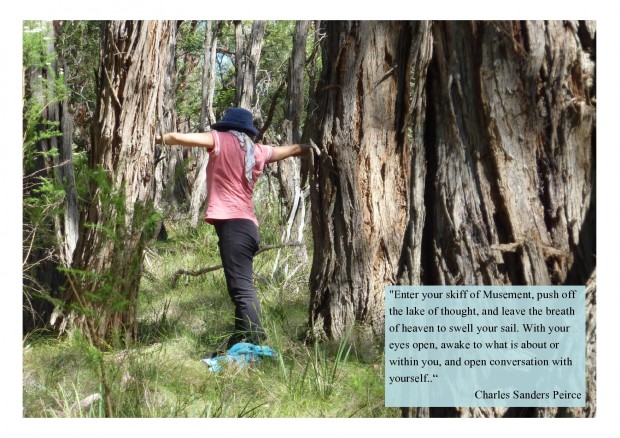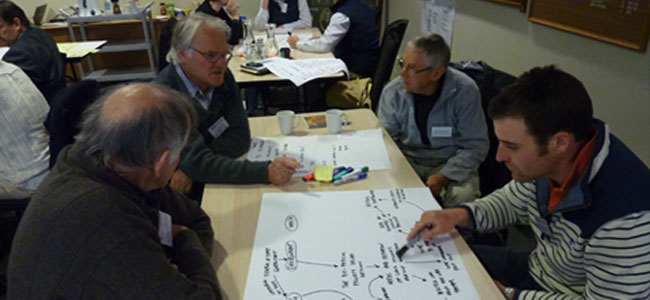Earlier this year, I googled “building an audience for a blog” and got about 3 pages of very useful links, mostly free, though of course some enterprisig lads has set up shop selling the good news on how to do a blog. I found onw interesting person and read her material for 15 minutes, and then moved on, as you do, and didn’t come back. I didn’t bookwark the page, but I’ve held onto one thing she said – reference other people’s blogs. That simple action slips you into the networks of bloggers, and there lies your critical audience and with luck some of your collaborators.
So where do I start connecting? To people interested enough in the things I’m interested in to write about it in the public medium of a blog.
Megan Roberts has been doing some thinking out loud about systems thinking. She says she got excited by systems thinking at university and went into the evaluation field imagining clients would be totally into it too. Not so. How to make the space for systemic thinking, let alone how to do systemic thinking!! My colleague Moragh has been bold enough in the Systemic Inquiry into NRM governance to invite people to think systemically, and amazingly, they’ve showed up, of their own free will, for three workshops over the last eight months.
Megan asks: what kind of systems thinking are other practitioners finding valuable, practitioners that is in the middle of and intent in facilitating change in social systems? As her jumping off point, she cites a framework from the Waters Foundation.
Looking at that framework, I know right away that surfacing assumptions is where I often return. I learnt from Bob Dick that in any path of action there are assumptions about situation, goals and action, and that these are in play all the time, shaping action and being tested in action. That’s been enough to go on with for several years, but the Water Foundation framework covers a lot of the different kinds of thinking you do as you explore those situations.
However, I realised the language in the framework doesn’t inspire me. What I carry in my heart right now is a chapter by Joan Fazey and Lisen Schultz in Allen and Starkey’s Adaptive Environmental Management: A Practitioner’s Guide, which reviews research on how adaptive people think. They cite seven attitudes to learning, and the language here resonates for me. Here are the four, and they feel like what I enjoy about learning:
To be broad and adventurous, with an impulse to probe assumptions and to tinker with boundaries;
To bring a zest for inquiry, an urge to find and pose problems, and a tendency to wonder;
To clarify and seek understanding, withy a desire to grasp the essence of things, and to anchor ideas to experience and seek connection to prior knowledge;
To plan and be strategic, setting goals, thinking ahead;
To be intellectually careful, with an urge for precision, a desire for mental orderliness;
To seek and evaluate reasons, pursuing justifications, grounds and sources;
To be metacognitive, self-aware and monitoring the flow of one’s thinking, and wanting to challenge oneself.
A zest for inquiry …. Wendy Wheeler has it in spades, in the most challenging article from my last couple of weeks’ reading, creative evolution wendy wheeler. She draws on Charles Sanders Peirce, the late 19th century learning theorist who laid the ground for John Dewey and he for action research.
Tipping my hat to Megan’s inventive use of images to open conepts, here is Peirce on what he called “abduction”, paired with the equally fabulous mover, Kuniko Yamamoto, in Barrm Birrm.


